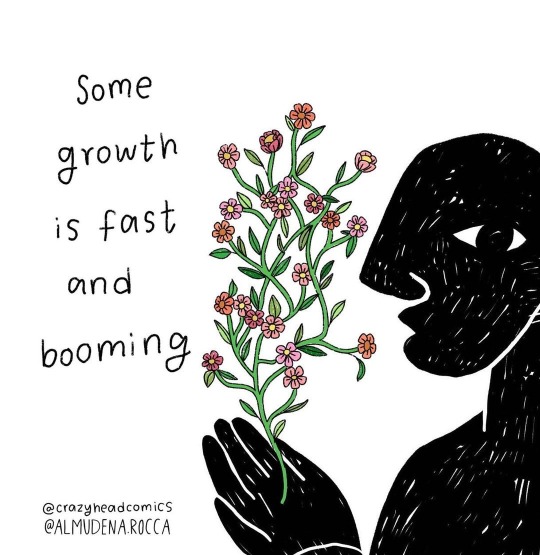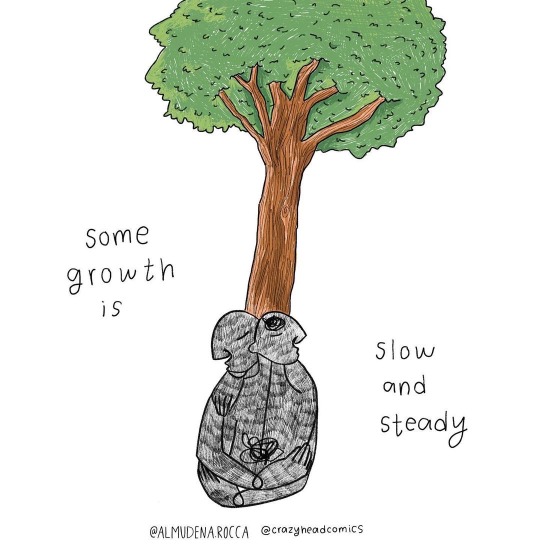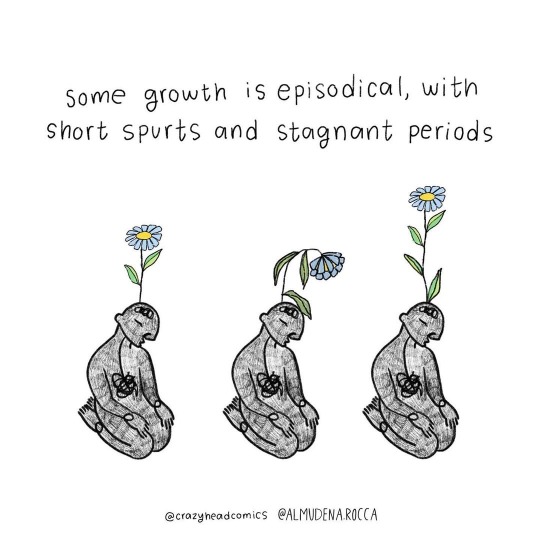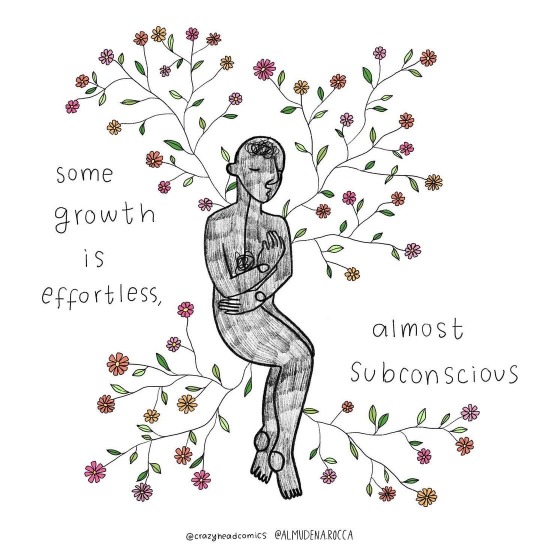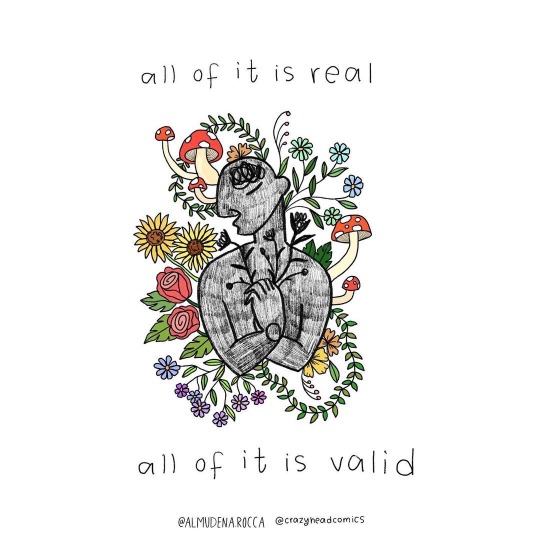Text
$20 to rent a movie online for 48 hours i need yall to get so real right now bc that is insane. “that’s the average cost” which is a problem!! if im paying $20 i better get the film on dvd to have and watch forever
22K notes
·
View notes
Photo
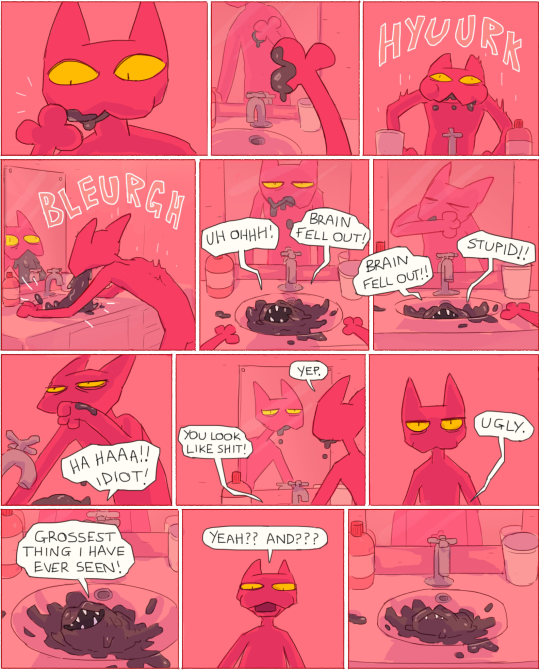
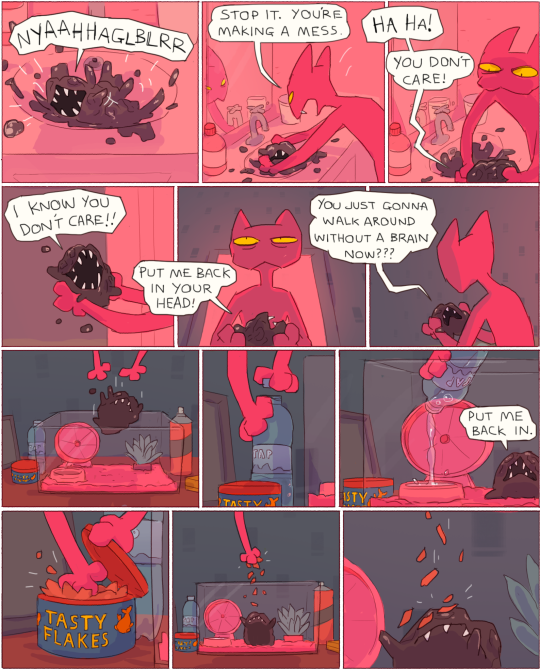
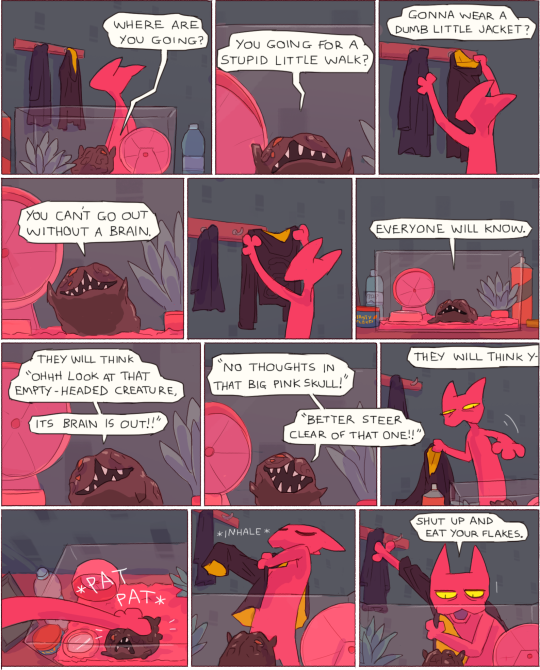
remove brain
87K notes
·
View notes
Text

this sentence makes me hopping mad. WHAT R U TRYING TO TELL ME
21K notes
·
View notes
Text
realizing that sticking to the "do it bad" "do it scared" mentality implies theres also a "do it bored"

99K notes
·
View notes
Text
there is a huge difference between criticizing an institution and criticizing individual behavior. i can criticize the makeup industry without criticizing the 14 year old girl who uses concealer because she’s self-conscious about her acne; i can criticize the plastic surgery industry without vilifying the woman who decided to get a nose job after two decades of pointed comments and bullying. it is intellectually dishonest to respond to an institutional criticism as if it were a personal attack; on the flip side, it is cruel and unnecessary to leverage personal attacks in the name of institutional criticism
if i see one (1) more person respond to a perfectly reasonable beauty-industry-critical sentiment with “but i personally enjoy eyeshadow. why are you attacking people who like eyeshadow :(” or “exactly, all women who wear makeup are miserable and brainwashed” i am going to climb a tree and bite the top of it
75K notes
·
View notes
Text

obsessed with this sign i saw taped up outside the bat room at the zoo yesterday. the enthusiasm, the hand-written note, the bat drawing.
81K notes
·
View notes
Text
Neurons help flush waste out of brain during sleep
There lies a paradox in sleep. Its apparent tranquility juxtaposes with the brain’s bustling activity. The night is still, but the brain is far from dormant. During sleep, brain cells produce bursts of electrical pulses that cumulate into rhythmic waves – a sign of heightened brain cell function.
But why is the brain active when we are resting?
Slow brain waves are associated with restful, refreshing sleep. And now, scientists at Washington University School of Medicine in St. Louis have found that brain waves help flush waste out of the brain during sleep. Individual nerve cells coordinate to produce rhythmic waves that propel fluid through dense brain tissue, washing the tissue in the process.
“These neurons are miniature pumps. Synchronized neural activity powers fluid flow and removal of debris from the brain,” explained first author Li-Feng Jiang-Xie, PhD, a postdoctoral research associate in the Department of Pathology & Immunology. “If we can build on this process, there is the possibility of delaying or even preventing neurological diseases, including Alzheimer’s and Parkinson’s disease, in which excess waste – such as metabolic waste and junk proteins – accumulate in the brain and lead to neurodegeneration.”
The findings are published Feb. 28 in Nature.
Brain cells orchestrate thoughts, feelings and body movements, and form dynamic networks essential for memory formation and problem-solving. But to perform such energy-demanding tasks, brain cells require fuel. Their consumption of nutrients from the diet creates metabolic waste in the process.
“It is critical that the brain disposes of metabolic waste that can build up and contribute to neurodegenerative diseases,” said Jonathan Kipnis, PhD, the Alan A. and Edith L. Wolff Distinguished Professor of Pathology & Immunology and a BJC Investigator. Kipnis is the senior author on the paper. “We knew that sleep is a time when the brain initiates a cleaning process to flush out waste and toxins it accumulates during wakefulness. But we didn’t know how that happens. These findings might be able to point us toward strategies and potential therapies to speed up the removal of damaging waste and to remove it before it can lead to dire consequences.”
But cleaning the dense brain is no simple task. Cerebrospinal fluid surrounding the brain enters and weaves through intricate cellular webs, collecting toxic waste as it travels. Upon exiting the brain, contaminated fluid must pass through a barrier before spilling into the lymphatic vessels in the dura mater – the outer tissue layer enveloping the brain underneath the skull. But what powers the movement of fluid into, through and out of the brain?
Studying the brains of sleeping mice, the researchers found that neurons drive cleaning efforts by firing electrical signals in a coordinated fashion to generate rhythmic waves in the brain, Jiang-Xie explained. They determined that such waves propel the fluid movement.
The research team silenced specific brain regions so that neurons in those regions didn’t create rhythmic waves. Without these waves, fresh cerebrospinal fluid could not flow through the silenced brain regions and trapped waste couldn’t leave the brain tissue.
“One of the reasons that we sleep is to cleanse the brain,” Kipnis said. “And if we can enhance this cleansing process, perhaps it’s possible to sleep less and remain healthy. Not everyone has the benefit of eight hours of sleep each night, and loss of sleep has an impact on health. Other studies have shown that mice that are genetically wired to sleep less have healthy brains. Could it be because they clean waste from their brains more efficiently? Could we help people living with insomnia by enhancing their brain’s cleaning abilities so they can get by on less sleep?”
Brain wave patterns change throughout sleep cycles. Of note, taller brain waves with larger amplitude move fluid with more force. The researchers are now interested in understanding why neurons fire waves with varying rhythmicity during sleep and which regions of the brain are most vulnerable to waste accumulation.
“We think the brain-cleaning process is similar to washing dishes,” neurobiologist Jiang-Xie explained. “You start, for example, with a large, slow, rhythmic wiping motion to clean soluble wastes splattered across the plate. Then you decrease the range of the motion and increase the speed of these movements to remove particularly sticky food waste on the plate. Despite the varying amplitude and rhythm of your hand movements, the overarching objective remains consistent: to remove different types of waste from dishes. Maybe the brain adjusts its cleaning method depending on the type and amount of waste.”
145 notes
·
View notes
Text
thinking that poor people shouldn’t reproduce is in fact still eugenics
22K notes
·
View notes
Text
I'm trying to write a post about tick safety and avoiding tick bites, but a lot of the info on websites is like "Avoid going in the woods, in plants, and where there are wild animals" and "Activities like hiking and gardening can put you at risk" and I'm like thanks! This is worthless!
As ticks and tick borne illnesses are expanding their range, I think it's important for people to be educated about these things, and I think it's especially important to give people actual advice on how to protect themselves instead of telling them to just...avoid the natural world
Rough draft version of Tick Advice:
Ticks don't jump down on you from trees, they get on you when you brush against grass, brush, bushes etc.
Ticks get brought to an area when they get done feeding from an animal and fall off them. In the USA, the main tick-bringing animal is deer, but I've seen plenty ticks on feral cats and songbirds.
Ticks get killed when they dry out so drier areas with more sunlight are less favorable to ticks.
The above is useful for figuring out whether an area is likely to have lots of ticks, and how vigilant you have to be in that area.
Wear light-colored, long pants outside. Tuck your pants into your socks, and tuck your shirt into the waist of your pants. Invest in light, breathable fabrics idc
IMMEDIATELY change out of your outside clothes when you come back from a tick-prone area, wash them, and dry them on high heat to kill any ticks that might be stuck on.
Shower and check yourself for ticks after coming inside. Hair, armpits, and nether regions in particular. You can use a handheld mirror or rely on touch; an attached tick will feel like a bump kinda like a scab
While you're outside, you can just periodically check for ticks by running your hands down your legs and checking visually to see if anything is crawling on your clothes. Light colors make them easy to spot, and they don't move fast.
Combing through each others' hair to check for creepy crawly critters is a time-honored primate ritual and is not weird. When hiking, bring a friend who will have your back when you feel something on your neck and need to know if it's sweat or a tick
If you're careful, you can usually catch ticks before they bite you, but if one does bite you, it's not the end of the world. Since tickborne diseases are different regionally i suspect this advice will differ based on where you are, but the important thing is remove the tick with tweezers (DON'T use butter, a lit match, or anything that kills the tick while it's still attached, please) and contact a doctor to see what to watch for. Most illnesses you can catch from ticks are easily treatable if you recognize them when symptoms first appear
41K notes
·
View notes
Text
i think it is important to recognize the ways in which your favorite thing sucks. i think it keeps u normal
31K notes
·
View notes
Text
3K notes
·
View notes



